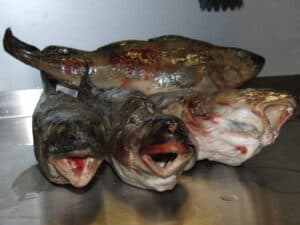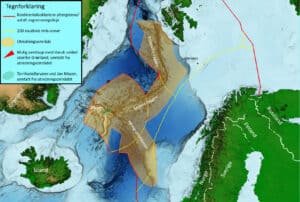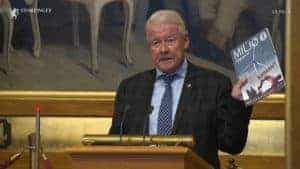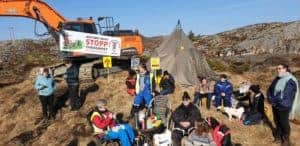The Norwegian Environmental Protection Association (NMF) works with a number of measures to limit the extent of marine littering, and since its inception in 1993 has focused on plastics, littering and recycling. In recent years, we have increasingly focused on marine litter. In 2017, NMF carried out several beach clean-up campaigns where we collected and cleared a total of 364 cubic meters of rubbish, which is then 28,663 kg. The most extensive was a continuous trip from Bergen to Tromsø, where we picked over 200 cubic meters of rubbish.
In addition to NMF working with method development, information initiatives, teaching and mapping, we also spend a lot of resources on active beach cleaning, where we clean beaches with the help of volunteers and our ship MS Miljødronningen. This is a very effective model where we get to clean beaches that are often difficult to access for the local volunteers.
Beach cleaning trip 2018
We are currently on a 2-month long beach clean-up cruise with M/S Miljødronningen, Oslo-Kirkenes. It is an extension of last year's trip that went from Bergen - Tromsø. The aim of the cruise is to clear the coast as best we can of plastic, increase awareness and commitment about plastic in the sea, create a change in attitude in everyday life, get volunteers involved in the cleanup.
Practical execution
The cleaning itself takes place by sailing the M/S Miljødroningen, which has a passenger capacity of 46 people and a crew of 4, to selected waters and disembarking the cleaning crews using the ship's dinghy. The volunteers are given the necessary equipment and, under the leadership of our own well-trained people, are distributed to relevant beaches in the area. When the bags are full, they are transported to the light boat and transported to the ship in Big bags that are craned on board. The entire process is carefully mapped and logged for further use in our work and that of others. We will then deliver the rubbish to approved reception with the help of local waste companies.
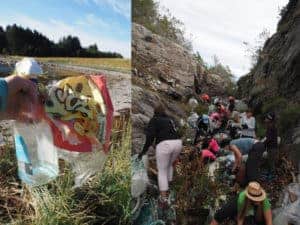
Cooperation and inclusion
We always seek cooperation with our local departments, members, local schools and other teams and organisations. This is both to obtain enough volunteers along the entire coast, to engage as many people as possible and, not least, to create as much local involvement as possible. NMF notes the great commitment of the population to clean up the shoreline. The NMF wishes to continue this commitment by including the local population in the work carried out in its outer coastal zones. We want the population to feel ownership of the work being done in their regions.
Personal problem
NMF's experience with a long-term commitment to plastic clean-up is that participation in beach clean-up days really changes people. The volunteers feel much greater ownership of the problem afterwards. This is also supported by research into psychology and environmental challenges. "Only when a problem becomes personal, will it be able to change our actions and habits", writes psychologist and BI professor Per Espen Stoknes in the book "What we think about, when we don't try to think about global warming". There is something in it. So then the task is clear; far more people need to get involved. Now.
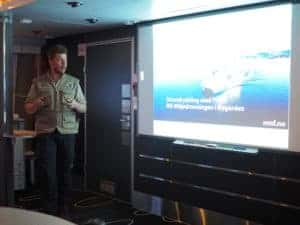
Instruction
We also plan to have students on board at each stop and hold lectures in the conference hall about marine litter, here we also have an exhibition that shows the problem visually.
Rørvik
At the time of writing, we are docked in Rørvik. We will have a clean-up operation here this afternoon at 4 p.m. We have been out on an inspection and found up to several coves/bays that need to be cleaned in the immediate area. We were a bit in doubt as to whether there was anything particularly marine litter to be found here. Because here students have a summer job cleaning up plastic. Great measures, and we actually have to look to find littered beaches! But something new comes along all the time, and that's what we're going to clean up today.
